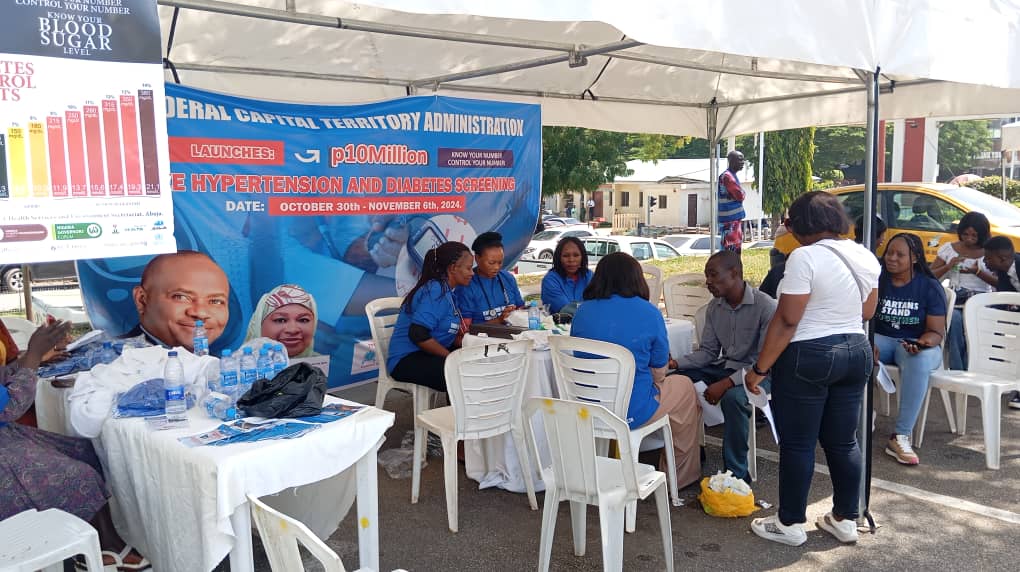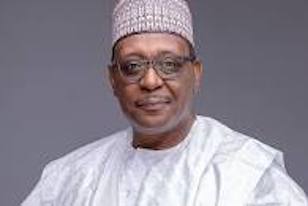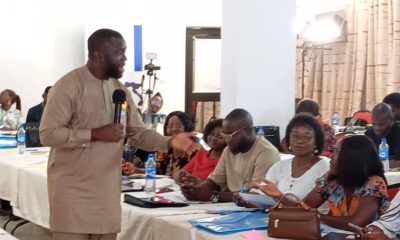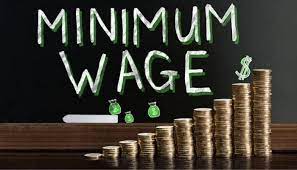Health
Africa is Getting Ready to Roll Out COVID-19 Vaccines – WHO

The World Health Organisation (WHO) says Africa is getting ready to rollout COVID-19 vaccines as WHO hosted the African Health Ministers and deliberated on necessary steps to achieve the feat.
The WHO Regional Office for Africa, in a statement issued from its headquarters in Brazzaville, Congo on Thursday stated the continent was planning for a rapid vaccine rollout.
The statement said Dr Matshidiso Moeti, WHO Regional Director for Africa had on Wednesday briefed Health Ministers on the region’s overall state of readiness for Africa’s largest-ever immunisation drive.
She also briefed them on planned vaccines delivery dates and next steps, including documentation required by COVAX related to regulatory readiness, indemnity and liability agreements so vaccine manufacturers could schedule shipment dates.
According to the UN health agency, rapid vaccine rollout is expected in the wake of the WHO listing of two versions of the AstraZeneca-Oxford COVID-19 vaccine for emergency use.
“In a significant step forward for the African region, national deployment and vaccination plans for COVID-19 vaccines from 35 low-income African countries eligible for free vaccines from the COVAX Facility have been accepted by an independent regional review committee.
“The plans are required for countries to receive vaccines from COVAX, the global initiative to ensure fair access to COVID-19 vaccines led by WHO, Gavi, the Vaccine Alliance, and The Coalition for Epidemic Preparedness Innovations (CEPI).
“While the regional committee of over 100 experts from six leading global public health bodies certified the deployment plans, it called for more work on setting up systems.
“It called for more work on setting up systems to manage the logistics and supply chain for vaccines, reaching refugees, migrants and internally displaced people and financing national vaccination campaigns,” said the statement.
The statement quoted Moeti, as saying, “Africa is revving up to rollout COVID-19 vaccines.
“These thorough vaccine preparation plans will help ensure African countries can hit the ground running in quickly immunising the most vulnerable people.
“Meticulous planning is key to ensuring vaccines reach all priority groups, wherever they are, in every single African country.”
The statement also quoted Thabani Maphosa, Managing Director, Country Programmes, GAVI, as saying, “COVAX is open for business.
“Thanks to secured avenues of supply through manufacturer deals and dose-sharing, clarity on global and regional supply forecasts, additional much-needed funding, and countries’ hard work to ensure readiness.
“The world now has its clearest pathway yet to ending the acute stage of this pandemic, globally.”
According to WHO, the move to roll out COVID-19 vaccines comes as new evidence shows new variants of the virus are spreading across the continent.
It stated that in all the African countries that had detected the new variants, the pandemic spread faster in the second wave than in the first one.
Variant 501Y.V2 [also known as B1.351] first identified in South Africa is predominant in South Africa and Zambia and has been detected in a total of nine African nations including Botswana, Comoros, Ghana, Kenya, Mozambique, South Africa, Tanzania, Zambia and Zimbabwe.
The VOC202012/01variant [also known as B1.1.7] first detected in the United Kingdom has been found in six African countries, Gambia, Ghana, Morocco, Nigeria, Senegal, South Africa.
In addition, it stated that countries were strongly urged to use the AstraZeneca vaccine even if the SARS-CoV-2 new variants are present.
“A small South African study has found the vaccine was not very effective against mild and moderate cases infected with the 501Y.V2 variant.
“After a review of all available data the WHO Strategic Advisory Group of Experts concluded that ongoing research suggests that the Astra Zeneca vaccine is likely to protect people against severe COVID-19
“However, this remains to be demonstrated in clinical trials and post-implementation evaluation,” WHO stated.
The statement further quoted Moeti, as saying, “our priority must be to protect the most vulnerable from severe illness and death. Along with rolling out safe and proven vaccines, we must also work towards a diverse vaccine portfolio.
“At the same time, manufacturers must be prepared to adjust to mutations of the virus, including potentially providing booster shots and adapted vaccines.”
WHO is helping countries ramp-up sequencing capacities to detect new variants. Since December 2020, there has been a 50 per cent increase in sequences produced by over 30 African countries. (NAN)
Health
UCH JOHESU Suspends Strike

The Joint Health Sector Unions (JOHESU), University College Hospital (UCH), Ibadan,has suspended the strike it embarked on Oct. 25.The workers resumed work on Friday morning.The seven-day nationwide warning industrial action embarked upon by the unions was to press home their demands ofadjustment of Consolidated Health Salary Structure as was done with the Consolidated Medical Salary Structure sinceJan.
2, 2014 and implementation of consultant cadre for pharmacists in federal health institutions. Others are upward review in the retirement age from 60 to 65 years for health workers and 70 years for consultants, andpayment of outstanding salaries of JOHESU members in professional regulatory councils.The UCH JOHESU Chairman, Mr Oladayo Olabampe, said that the strike was suspended as directed by the national body.He explained that “the suspension followed an MoU signed between JOHESU national leadership and Federal Government.“The Federal Government asked for a maximum of six weeks counting from Oct. 31, to meet our demands.“Based on the MoU signed, the JOHESU National Executive Council met and resolved that the strike be suspended on Fridaynationwide.”According to him, JOHESU UCH is obeying the order, and workers have resumed work.Olabampe said that if the demands were not met after the six weeks, they would embark on an indefinite strike. (NAN)Health
Health: FCTA kick off Screening of over 250,000 Abuja Residents

By Laide Akinboade, Abuja
The Federal Capital Territory Administration, FCTA, on Wednesday, kicked starts the screening of over 250,000 Abuja residents on diabetes and hypertension, and also do referrals.Dr Adedolapo Fasawe the Mandate secretary of Federal Capital Territory Health and Environmental Services Secretariat (FCT-HESS, while declaring the one week screening open, in Abuja.
She raised alarm at the rate at which people slump and die of high blood pressure and diabetes, adding that these unnecessary deaths can be prevented by regularly checking your sugar level and your blood pressure. She lamented that diabetes and hypertension are two silent killers and noted that, North central has one of the highest number of diabetes and hypertension. And 40% didn’t know they have hypertension until they came across a program like this.According to her, “So, this is an initiative of all commissioners for Health in Nigeria; 36 states plus the FCT. I am happy to say here in the FCT, we have had several programmes similar to this. We had a medical palliative program whereby we gave people medicines for free, for whatever their ailments is for one month. So that the money they would have used to buy medicines, they would use for other things. And we encourage the Health Insurance Scheme, whereby you pay a token, if you can afford it and your healthcare is free for the year. Or if you are considered vulnerable or poor, you are registered for free.”Now, what motivated this, we started noticing that people were slumping and dying. The rate of non-communicable diseases is going high. We were focusing a lot on HIV, malaria, and tuberculosis. But all of a sudden, people are dropping dead, and older people who were otherwise healthy in the morning would slump in the afternoon. At post-mortem, we were realising that people had undiagnosed heart diseases, which is a complication of undiagnosed hypertension. Hypertension is a very treatable disease if caught early. Diabetes is a very treatable disease if caught early. Treatable in the sense that if you adhere to your doctor’s instructions, and take your medication, you will live a normal life”.She continued, “Out of every 27 Nigerians, one person is hypertensive, this is recorded. Now, we are trying to look for all these people, educate them, and give them medication, so that your quality of life, your output at work, and in the end, the GDP of the nation would be improved. Because with this RHA, we constantly look for ways to reach the people and touch them. And the essence of this program also is that people find it hard to leave their workplace where they get money, their markets, and their farms, to go to the hospital to check. “We are taking this project 10 million to the doorstep of people, where they live, where they work, where they play. We will be in every Area council, we will be in most chiefdoms and palaces, we will be in markets, we will be in places like this where most people aggregate, and the good news is, it will run for one week. If you can’t make it today, you will make it tomorrow. And I believe at the end of this, the saying ‘health is wealth’ will truly be understood. Without good health, we cannot enjoy the beautiful infrastructure that the FCT is putting up daily”.”This program is not only for those who are suffering from hypertension or diabetes. It is also for people who we find their results to be normal. When we find their results to be normal, our screening tool has some questions; do you smoke? Do you exercise? What is your diet like, what is your lifestyle like? If the result is normal, we will encourage you and teach you how to keep it normal. That means you have been doing something good.”For people we have found to have normal readings, we encourage them and teach them how to keep it normal. They are also a very integral part of this program. It’s called health promotion. Prevention is better than cure. We can learn from them what they have been doing, we can teach them to teach their neighbours how to keep their blood pressure and blood sugar normal. And if indeed within this secretariat, we are finding normal readings, the risk factors for high blood pressure include stress, sleeplessness, obesity, family history, and sedentary lifestyle. What it then means is that most of us here, do not fall into that. If you work for Barrister Nyesom Wike, it is not likely that you have a sedentary lifestyle”.The Acting Director of the FCT Health Insurance Scheme, Dr Salma Lawal Belgore also announced that the FCT will undertake the cost of health services for a pregnant woman, Mrs Esther Omojo, until a year after the birth of her baby. She explained that the insurance will cover medical consultations, drugs, delivery and even surgery.“Our patient will benefit from medical consultation, lab investigations, her drugs, her delivery and even if she has to have surgery, it is all covered by the health insurance scheme, at no cost to her. The FCT Administration is enrolling her under the health insurance scheme, as well as all FCT residents. With the unborn baby, and a year after the baby is born, the baby is also going to be covered under the health insurance scheme, and will access medicines, medical consultations, and lab investigations at no cost to the mother or the baby”, she said.Health
Consumption of Sugar-sweetened Beverages Capable of Causing Diabetes, other Diseases – Minister

The Federal Government has discouraged the consumption of Sugar-Sweetened Beverages (SSB) because it is capable of causing diabetes and other Non- Communicable Diseases (NCDs), an official has said.
Dr Ali Pate, the Coordinating Minister of Health and Social Welfare, said this in Abuja on Tuesday at the National Conference on Sugar-Sweetened Beverages (SSB) Tax and Health Financing in Nigeria.
The theme of the conference titled “Health Tax as a Recipe for Improved Healthcare Financing”.
The minister was represented by Mrs Olubunmi Aribeana, the Director, Food and Drug Services Department, Ministry of Health and Social Welfare.
He recalled that the Federal Government introduced SSB tax in 2021 to reduce the consumption of SSB as well as reducing the prevalence of obesity, diabetes and other related diseases.
“Sugar-sweetened beverages (SSBs) are drinks that contain added natural sweeteners, such as table sugar, high-fructose corn syrup, or fruit juice concentrates, all of which have similar metabolic effects.
“The consumption of SSBs has been linked to numerous health risks, including obesity, heart disease, weight gain, type 2 diabetes, kidney diseases, non-alcoholic liver disease, tooth decay, cavities, and gout.
“The health burden of SSB consumption is particularly significant in low- and middle-income countries, where rates of obesity and related health problems are on the rise.”
The minister said the country faced a growing health crisis with SSB-related diseases such as obesity and diabetes, adding that the associated healthcare costs were escalating at an alarming rate.
“Recent reviews and meta-analyses by the International Diabetes Foundation (IDF) show that as of 2021, over 3.6 million people are diabetic with 53 per cent of these citizens undiagnosed; and this number is expected to rise to about five million by the year 2030.
“The cost of treating diabetes per person has surged from an average of N60,000 in 2011 to N800,000 in 2021, and it is projected to exceed N1 Million by 2030.”
According to him, the goal of the SSB tax is to reduce the consumption of these unhealthy beverages, ultimately preventing obesity and its related diseases.
“In 2021, Nigeria joined over 100 countries that have introduced taxes on sugar-sweetened beverages. This tax, embedded in the Finance Act of 2021, levies a N10 tax on each litre of all non-alcoholic, sweetened, and carbonated drinks.
“As we look to the future, we must view the SSB tax as a cornerstone of our strategy to improve public health and healthcare financing.
“By discouraging the consumption of sugar-laden beverages, we aim to reduce the prevalence of obesity and diabetes, and in turn, alleviate the financial burden on our healthcare system.”
According to the minister, this tax serves as a deterrent and generates essential revenue that can be reinvested into healthcare initiatives, particularly preventive measures and the treatment of non-communicable diseases.
“Our vision is a Nigeria where healthier choices are accessible and affordable for all citizens.
“We aspire to create an environment where nutritious alternatives are readily available, empowering individuals to make informed decisions about their diet and overall health.”
The minister called on food and beverage industry, healthcare providers, civil society organisations and other relevant stakeholders to strengthen their collaboration to promote healthier lifestyles and ensure the sustainability of the nation’s health systems.
He said in line with the government’s vision, the 2023 National Policy on Food Safety and Quality and its Implementation Plan also prioritised the consumption of healthy foods.
According to him, the plan specifically expects the government at every level to develop strategies for reducing the consumption of sugar, alcohol, and sodium as well as the elimination of Trans-Fatty Acids (TFAs) in Nigerian diets.
The minister restated the Federal Government’s commitment to ensure food supply chain supports the health and well-being of the population by minimising the risks associated with poor dietary choices.
In his remarks, Mr Akinbode Oluwafemi, Executive Director, Corporate Accountability and Public Participation Africa (CAPPA), said that the current SSB tax that imposed an excise duty of N10 per litre on all non-alcoholic and sweetened beverages did not meet global standards.
Oluwafemi said, “At N10 per liter, Nigeria’s current tax on SSBs falls short of the World Health Organisation’s recommendation and global best practice of a minimum of 20 per cent of total retail prices.
“In fact, the impact of our current tax rate has been largely eroded by escalating inflationary pressures, rendering it nearly ineffective, hence the need for a re-evaluation.
“This is why, last year, CAPPA in collaboration with the Centre for the Study of Economies of Africa, conducted a simulation study that examined the potential fiscal and public health effects of SSBs in Nigeria, to provide Nigeria-specific data and information to support a re-calibration of the SSB tax rate.
“Findings from this research not only underscored the urgent need to address the public health impact of excessive SSB consumption but also identified an effective tax rate of N130 per litre as the most sustainable peg for realising public health goals.
“After two years of implementing the SSB tax, we strongly advocate, based on available evidence evaluating its impacts, that the Nigerian government should activate all necessary policy measures to increase the tax from N10 to N130 per liter.
“Or government should implement a revised tax structure to 50 per cent of the total retail price rate of SSB products as recommended by the Global Tax Force for Health of which our honourabe minister is a member.
“This adjustment will not only align with the WHO recommendations but also with the 2024 Bloomberg report on effective health taxes.
“Additionally, this increment must be accompanied by a redefinition of SSBs to capture all products that fall within the categorisation, and a resolve to establish a legal framework for earmarking the tax for public health initiatives,” CAPPA boss said. (NAN)































